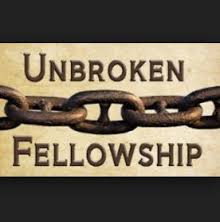Joy and strength
Upon returning from exile, Nehemiah told the builders of the new wall of Jerusalem that “the joy of the Lord would be their strength.” (Nehemiah 8:10) The type of joy Nehemiah was alluding to was only possible from our Almighty God Who would sustain them through the direst of circumstances.
What sustains you? In the midst of all our challenges as a nation, in our communities, and in our families, how are you holding up? How is your joy capacity? Is the joy of the Lord still our strength today? Yes! The principle of joy still resonates even in the 21st century (James 1:2-3; Phil. 4:4).
What exactly is joy?
Joy is defined by Webster as a feeling of great pleasure and happiness. This definition, however, fails to explain the importance of joy in building resiliency, or our ability to “bounce back” from the challenges of life. It is joy that increases our emotional capacity to handle the difficulties we face while we live in this fallen world.
Joy nuggets
Although we may feel like we have little or no joy left, we must be diligent to “refill” our joy tanks. I’d like to share just a few “joy nuggets” nuggets so you too can increase your JQ–joy quotient.
We increase our joy when we are in relationship. I’m not talking about sexual relationship (although that is important) but I mean when we are in fellowship with others. God said it is not “good for man to be alone.” In response, God created woman to be in relationship with Him. (Gen. 2:18) God Himself was in relationship with the first married couple.
In relationship, joy comes from knowing that the person you are with is happy to see and be with you. Relationship was key to Christ as we observe His relationship with His disciples and His close circle which included Peter, James, and John
We increase joy when we are in community. Social restraints and changing technology have made archaic the idea of a physical community. Remember Mrs. Branch who taught the girls how to play the piano? Or Mr. Johnson’s “show and tell” sessions about his adventures in the Army. Or Mrs. Mott’s homemade cider and gingerbread at Halloween.
Community offered familiarity, authenticity, and validation. Joy was found in acceptance and genuine interest in the individual. Join a community that can offer these benefits. Remember the television sitcom, “Cheers”. At Cheers “everybody knows your name and their all so glad you came. We want to go where everybody knows your name!”
We increase joy when we reflect on moments of appreciation. Think about a person that you appreciate and a time you felt especially grateful to be with that person.
Describe the emotion you felt when you were with them. Describe what your body felt like when that person was present. Doing this exercise regularly will raise your joy level.
Let your joy flow
Although joy might appear to be a fleeting emotion, it really requires that we be intentional in our pursuit of it.
My joy begins first with God, my most important relationship. It is in time of prayer, reading His Word, and fellowship through worship that I feel my greatest joy. With Him, I feel safe, calm, and connected. I feel joy.
Next, I find great joy with family and friends. It is in sharing meals, recounting stories, and in creating new memories that I find joy. These times together help me put into perspective what is important and “joyful.” I share joy.
How is your joy capacity?


